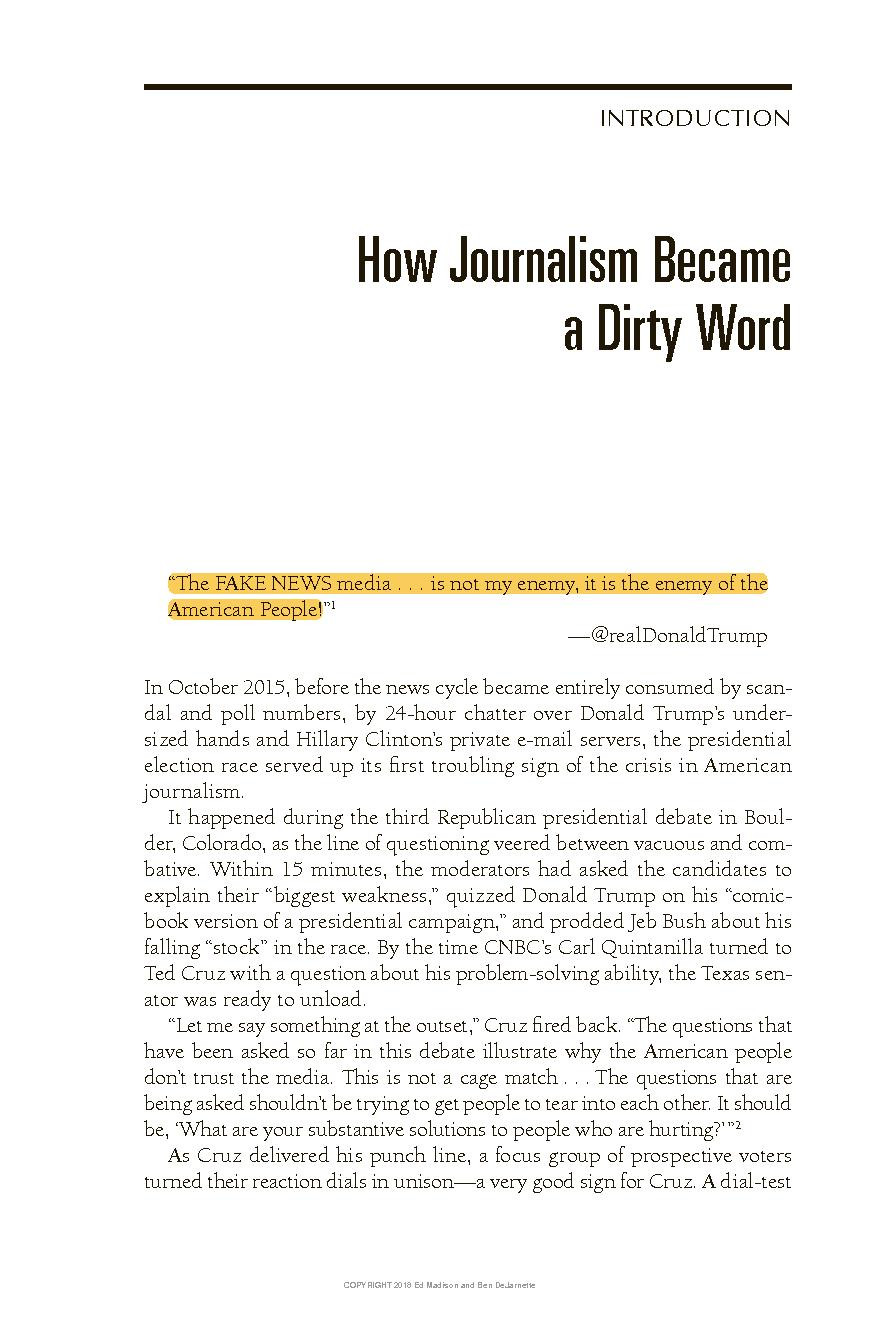Business management> Book > How Journalism Became a Dirty Word
How Journalism Became a Dirty Word
“The FAKE NEWS media . . . is not my enemy, it is the enemy of the American People!”1 —@realDonaldTrump In October 2015, before the news cycle became entirely consumed by scandal and poll numbers, by 24-hour chatter over Donald Trump’s undersized hands and Hillary Clinton’s private e-mail servers, the presidential election race served up its first troubling sign of the crisis in American journalism ... [Show More]Last updated: 3 years ago
Preview 1 out of 26 pages

